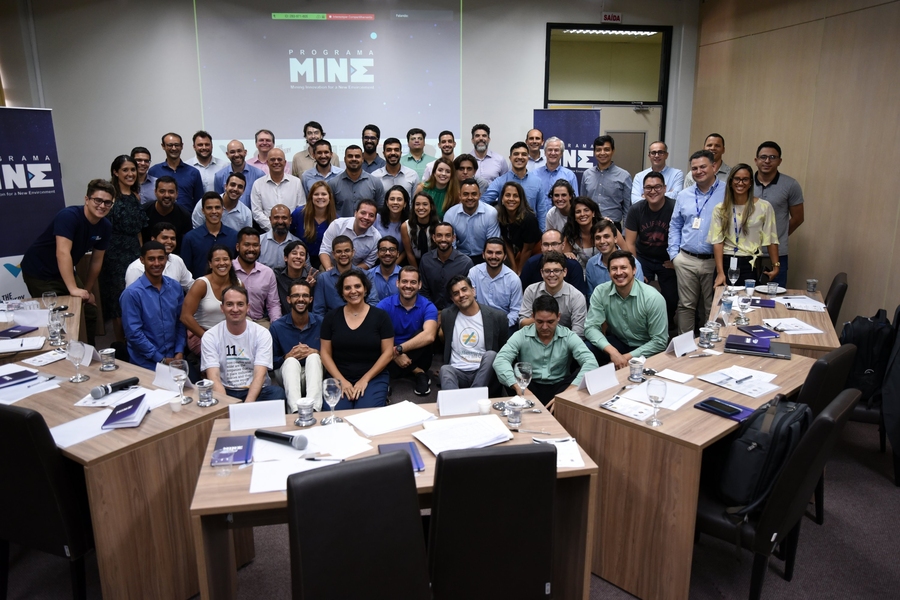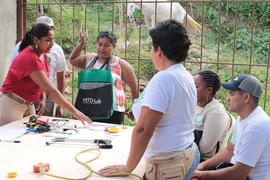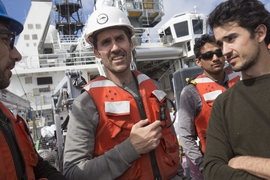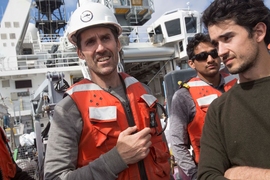For the mining industry, efforts to achieve sustainability are moving from local to global. In the past, mining companies focused sustainability initiatives more on their social license to operate — treating workers fairly and operating safe and healthy facilities. However, concerns over climate change have put mining operations and supply chains in the global spotlight, leading to various carbon-neutral promises by mining companies in recent months.
Heading in this direction is Vale, a global mining company and the world’s largest iron ore and nickel producer. It is a publicly traded company headquartered in Brazil with operations in 30 countries. In the wake of two major tailings dam failures, as well as continued pressure to reduce carbon emissions, Vale has committed to spend $2 billion to cut both its direct and indirect carbon emissions 33 percent by 2030. To meet these ambitions, a broad cultural change is required — and MIT is one of the partners invited by Vale to help with the challenge.
Stephen Potter, global strategy director for Vale, knows that local understanding of sustainability is fundamental to reaching its goals. “We need to attract the best and brightest young people to work in the Brazilian mining sector, and young people want to work for companies with a strong sustainability program,” Potter says.
To that end, Vale created the Mining Innovation in a New Environment (MINE) program in 2019, in collaboration with the MIT Environmental Solutions Initiative (ESI); the Imperial College London Consultants; The Bakery, a start-up accelerator; and SENAI CIMATEC, a Brazilian technical institute. The program provides classes and sustainability training to young professionals with degrees relevant to mining engineering. Students in the MINE program get hands-on experience working with a real challenge the company is facing, while also expanding their personal leadership and technical skills. “Instilling young people with an entrepreneurial and innovative mindset is a core tenet of this program, whether they ultimately work at Vale or elsewhere,” says Potter.
ESI’s role in the MINE program is to provide expert perspectives on sustainability that students wouldn’t receive in ordinary engineering training courses. “MIT offers a unique blend of scientific and engineering expertise, as well as entrepreneurial spirit, that can inspire young professionals in the Brazilian mining sector to work toward sustainable practices,” says ESI Director John Fernández. Drawing on a deep, multidisciplinary portfolio of MIT research on the extraction and processing of metals and minerals, MIT can support the deployment of innovative technologies and environmentally and socially conscious business strategies throughout a global supply chain.
Since December 2019, the inaugural class of 30 MINE students has had a whirlwind of experiences. To kick off the program, MIT offered six weeks of online training, building up to an immersive training session in Janary 2020. Hosted by SENAI CIMATEC at their academic campus in Salvador, Brazil, the event featured in-person sessions with five MIT faculty: professsors Jessika Trancik, Roberto Rigobon, Andrew Whittle, Rafi Segal, and Principal Research Scientist Randolph Kirchain.
The two-week event was coordinated by Suzanne Greene, who leads the MINE program for ESI as part of her role with the MIT Sustainable Supply Chains program. “What I loved about this program,” Greene says, “was the breadth of topics MIT’s lecturers were able to offer students. Students could take a deep dive on clean energy technology one day and tailings dams the next.”
The courses were designed to give the students a common grounding in sustainability concepts and management tools to prepare them for the next phase of the program, a hands-on research project within Vale. Immersion projects in this next phase align Vale’s core sustainability strategies around worker and infrastructure safety and the low-carbon energy transition.
“This project is a great opportunity for Vale to reconfigure their supply chain and also improve the social and environmental performance,” says Marina Mattos, a postdoc working with ESI in the Metals, Minerals, and the Environment program. “As a Brazilian, I’m thrilled to be part of the MIT team helping to develop next-generation engineers with the values, attitudes, and skills necessary to understand and address challenges of the mining industry.”
“We expect this program will lead to interest from other extractive companies, not only for education, but for research as well,” adds Greene. “This is just the beginning.”









